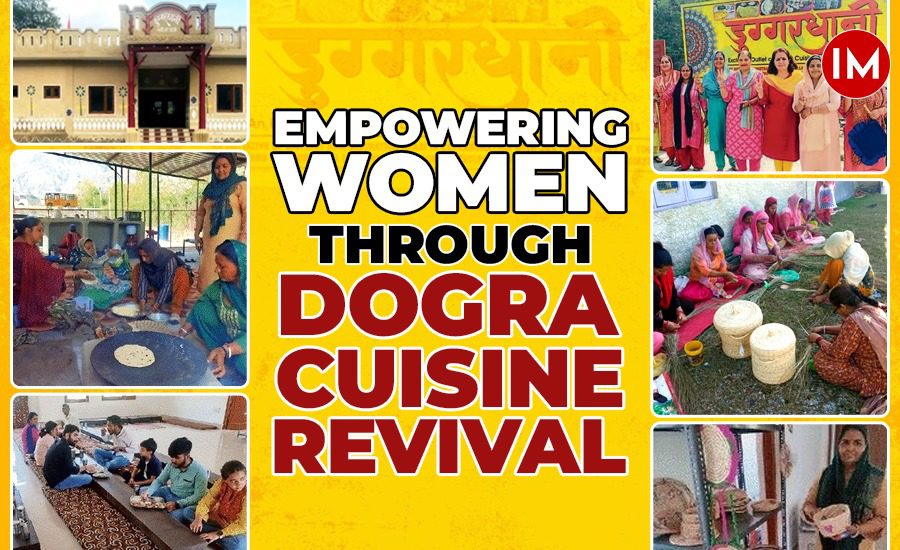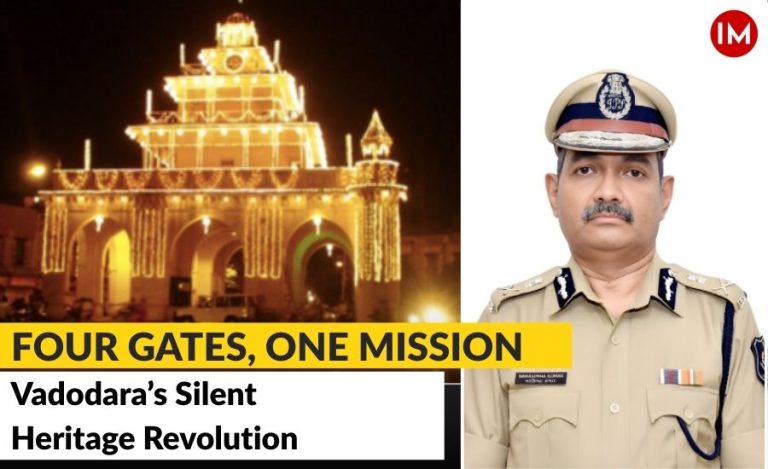Last month, Prime Minister Modi held a rally in Jammu. 10 thousand lunch tiffins were ordered for the people who came to the public meeting. Duggardhani, too, received an order. Since then, Duggardhani has attracted everyone’s attention.
Duggardhani, a village haat in Jammu and Kashmir’s Reasi district, is now one of the biggest tourist attractions in Jammu, especially among travelers on their way to the holy Mata Vaishno Devi shrine. It was an attempt by the administration to empower women and introduce positive changes in women’s lives in Reasi.
Launched on May 16 last year by the administration, Duggardhani has employed over 1500 women from SHGs and has promoted Dogra cuisine most finely. The taste of Dogra food is now reaching every corner of the country through this. It not only fulfilled the longstanding demands of SHG members by providing a marketplace for traditional food and handicrafts but also revitalized age-old traditions.
Indian Masterminds interacted with the then-District Development Commissioner of Reasi, Ms. Babila Rakwal, 2008 batch KAS officer, to learn about this initiative. She is currently posted as the Administrative Secretary in the Co-Operative Department at J&K.

DUGGARDHANI
A government-owned Tourism Reception Centre (TRC) building, located along a national highway in a tourist area, had been sitting idle for some time. The administration had been considering utilizing it for a while.
Ms. Rakwal said, “Then, the idea emerged to allocate it to our SHGs, enabling them to put it to use. We involved some women from a self-help group, who were operating a small restaurant called Dogra Haat in the project.”
The administration then reached out to other clusters to discuss the initiative and promotion of Dogra cuisine in restaurants. This marked the beginning of Duggardhani.

The cluster comprises 150 Self-Help groups (SHGs), with each SHG consisting of 10 women.
Subsequently, the entire project commenced in collaboration with the tourism department and NRLM (National Rural livelihoods mission). Furthermore, the tourism department agreed to allocate the building to the self-help groups (SHGs).
Ms Rakwal said, “This location holds significant tourism potential as it lies on the route from Katra to Vaishno Devi, a path frequently traveled by pilgrims and tourists alike.”
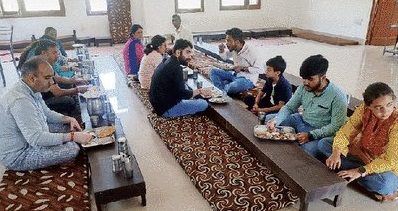
THE LOOK
The administration then started working on the look of Duggardhani. They engaged with an artist to imbue the space with a rural aesthetic.
Mr. Shiv Kumar, an artist associated with the Mata Vaishno Devi Shrine Board, lent his expertise by creating numerous murals. These depicted the captivating tourist and cultural attractions of Reasi, transforming the space into a mansion-like ambiance.
The seating arrangement was designed in accordance with the ancient Vedic tradition; where individuals would sit down to eat. Meals are also prepared using traditional stoves. Thus, it was christened ‘Duggardhani’, with funds being sourced from corporate social responsibility (CSR) investments.
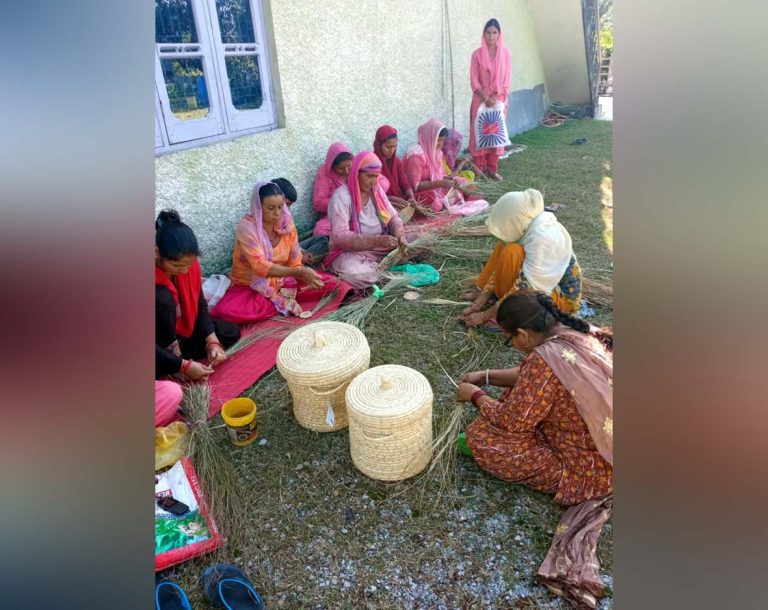
Ms. Rakwal said, “This program was designed to give women in self-help groups a career alternative using their culinary skills. I am happy to share that this is now happening.”
The good thing is that women of all ages are roped in by this initiative. Each woman brings her area of specialization to the table.

TRAINING
The SHG members have also received training in various aspects, including pantry stocking, quick recipe preparation, packing techniques, social media skills, and order management. Additionally, they have been educated on promotional strategies tailored for the modern market, equipping them with the skills needed to independently manage their kitchens.
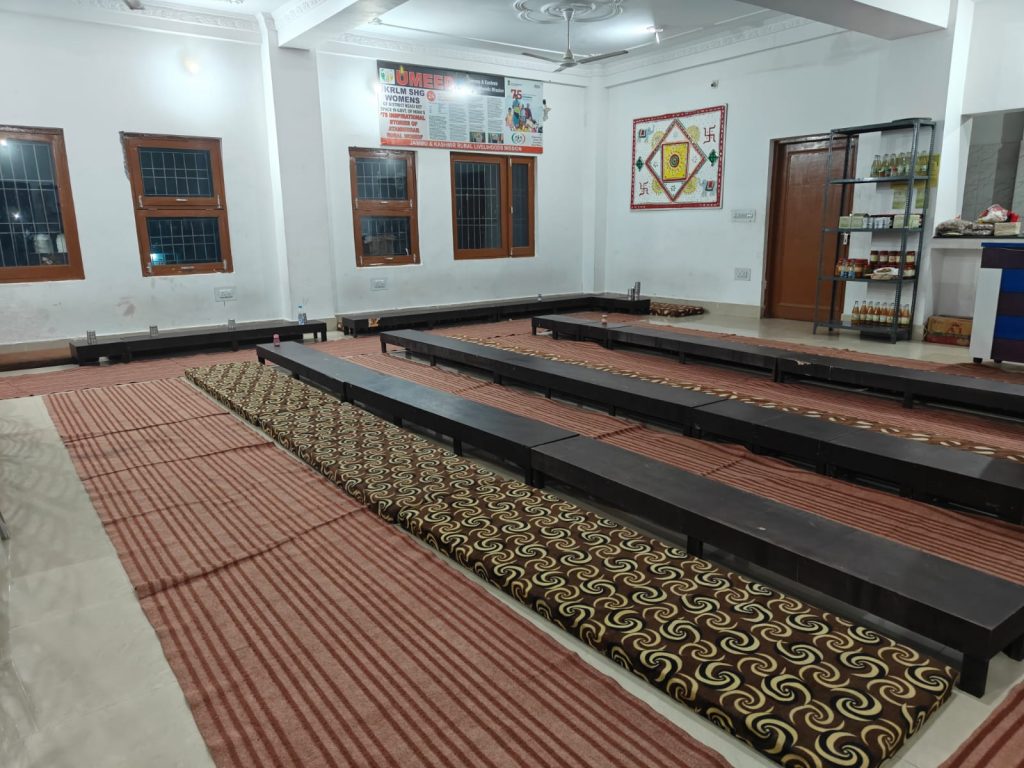
ORGANIC FOOD
Following this, emphasis was placed on cultivating organic vegetables. Ms. Rakwal encouraged the women to transition towards cultivating organic vegetables gradually. This involved engaging in farming either on their land or on provided space elsewhere. Consequently, women began cultivating vegetables, gradually expanding into farming activities within their community.
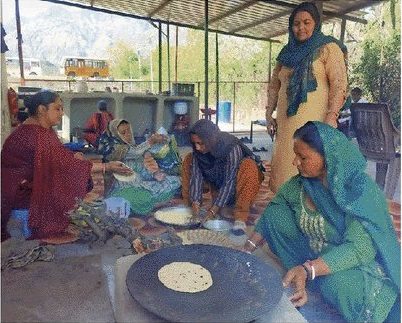
DOGRA PRODUCTS
Duggardhani has also addressed the longstanding requests of SHG members for a marketplace to sell traditional handicrafts and other items. Now, apart from traditional food, the women are also selling handicrafts like chabhari binna (grass craft) and other handloom products, as well as the region’s value-added agriculture and horticulture items such as tikki masala, pickles, chutneys, jams, and papads.
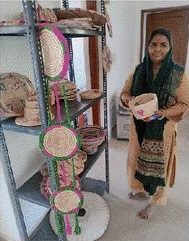
USP
Their unique selling point lies in the quality and affordability of their products. Every food item is freshly prepared, ensuring minimal waste.
“Among the renowned Dogra delicacies are makki ki roti, saag, quer, khurmure, special Dogra dal, and mixed rice, complemented by beverages like lassi and kheer. What distinguishes Duggardhani cuisine from commercial offerings is the Duggardhani menu’s emphasis on homemade dishes tailored to individual preferences,” remarked Ms. Rakwal.

BENEFITS
This empowering endeavor helps SHGs embrace traditional crafts and cuisines for sustainable livelihoods, preserving the essence of Dogra culture. Their earnings range from Rs 90 to Rs 1 lakh per month. Here, Self-Help groups (SHGs) operate on a rotational basis, ensuring that all women in the clusters have employment opportunities.
Ms. Rakwal said, “Soon, NABARD will also help them develop it on a large scale.”
#ProgressingJK #RuralHaat#TraditionalCusine_ArtiFact
— Deputy Commissioner Reasi (@DMReasi) May 17, 2023
Inaugurated Vilage Rural Haat #DuggarDhani in Pyt Kheral Block Pouni in p/o Adl Mission Director JKRLM Jmu, AD tourism & Tehsildar Reasi
An outlet 4 dogra cuisine & traditional Artefacts.@diprjk @MDJKSRLM @indukanwal pic.twitter.com/cKqPvQg85c

